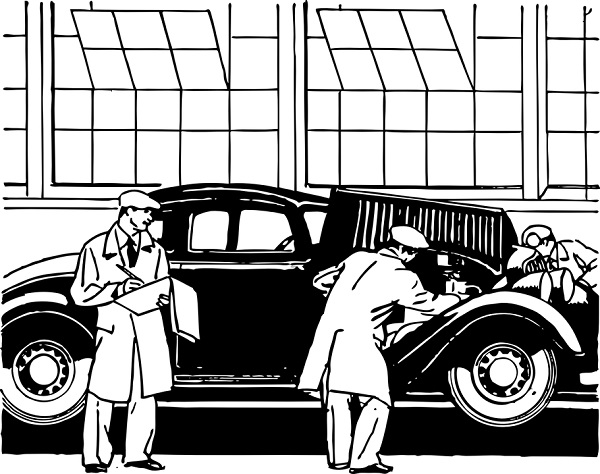You may not consider your mechanic to be your best friend, but there are several topics where they should be your go-to person. If you want to maintain the lifespan of your vehicle, read on for four things to discuss with your automotive professional today.
1. How often your car needs to be checked
There is a good chance that you spend a significant amount of your time in your car, which is why it must be operating correctly. The best way to ensure your vehicle is functioning correctly is by taking it for regular checks.
Generally, there are six essential checks that your car should have to keep it in good health. These checks include checking the oil, your tires, wheel alignment, lights, checking your washer fluid, and finally a steering wheel check.
If you purchased your car brand new, then your dealership probably provided you with a maintenance passport detailing when these checks need to take place. However, if you bought your car secondhand or aren’t sure when these maintenance items need to be scheduled, your best option is to speak with an automotive professional as they will be able to assess the vehicle and make the appropriate recommendations.
When it comes to conducting some of these , you want a qualified professional to do them as they are trained in looking for signs of trouble that something may be about to give way in the car. Your car might not be manifesting any signs of problems but, it’s better to be safe now than be sorry later.
2. Which grease is right for your car
Unfortunately, too many vehicle owners don’t know which grease is right for their car and, consequently, use one that isn’t equipped for the job. It can even impact vehicle performance.
To ensure you are not part of this group, make an appointment to speak with an automotive professional who will be able to advise you on the appropriate grease to use. The last thing you want to be doing is using the wrong grease, or mixing lubricants, as this can have devastating effects on the performance of your bearings and other mechanical parts.
In the automotive world, the most common option is multi-purpose automotive grease, as it has a high resistance to water as well as offers excellent protection against wear and corrosion.
While many cars use a multi-purpose automotive grease, you still want to insure you research the quality. This will help you ascertain which is the best option for you and your car. Utilizing high-quality automotive grease is crucial as it will make a significant difference when it comes to part longevity.
3. How to extend the lifespan of your bearings
Speaking of grease, did you know that over half of premature bearing failures are caused by improper lubrication? Furthermore, early wheel bearing damage is one of the most prevalent problems that car owners have.This issue could be significantly reduced if more vehicle owners spoke with an automotive professional about their car’s needs.
Your wheel bearings are an integral component of your vehicle and need to be maintained for it to continue running. In addition to having these professionally checked per the vehicle manufacturer’s recommendations, to extend the lifespan of your bearings, make sure only to use clean tools when working on the car as well as high-quality products. Additionally, be diligent about observing signs of wheel bearing damage such as odd noises, breakage or shoulder dents, faulty steering, overheating, and vibrations.
4. When to be concerned about your car
Ask any automotive professional what they want you to stop doing, and most will say “ignoring signs of issues.” After all, they are the ones who see cars in all conditions and have the knowledge to recognize that in many cases, things would not have deteriorated so bad if the owner had brought the vehicle in sooner.
Know when to heed signs of trouble
If you have any concerns about your vehicle, your best option is to reach out to an automotive professional and have them take a look at it. For example, if your “check engine” or your vehicle starts stumbling and stalling, you want to take it to be checked as soon as possible by your trusted mechanic.
Additionally, if you notice unusual noises or strange smells, you’ll want to take the vehicle to be inspected as these are often early warning signs of more severe issues. Keep in mind that when parts are squealing, grinding, or rumbling, they are unlikely to fix themselves. Consequently, they will ultimately fail, usually causing damage to other expensive components in the process.
What do you think is essential to talk to your automotive professional about? Do you have any examples of when you wish you would have spoken to them sooner?
Let us know in the comments below!
To subscribe to our posts, enter your email into the subscription box to the right if you are on a desktop computer and at the bottom of the page if you are on mobile. You can also follow us on Instagram @highperformancejunkies
Other articles you may be interested in:
Lemon law car advice | deep scratch and key marks repair guide | must haves for your winter car emergency kit | car start problems | transmission clunks going into gear

